
For centuries, the UK's adaptable and hardy goats were a constant feature of the thousands of smallholdings and farms across the nation. Thanks to these animals' abilities to thrive in our environment, they provided households with milk and meat with impressive efficiency and little demand on their owners.
Today, the RBST Watchlist recognises four goat breeds as native to the UK and all of them are categorised as rare: the English Goat, the Old English Goat as 'priority breeds' and the Bagot Goat and the Golden Guernsey Goat as 'at risk'.
The English Goat breed completed the requirements for recognition on the RBST Watchlist as a rare native breed in 2020, joining the Bagot and Golden Guernsey breeds which were already on the Watchlist. The Old English Goat breed was recognised the following year, on the Watchlist published in 2021.
This high-profile recognition of these two breeds as native to the UK, and as Priority rare breeds, has helped generate renewed interest from a range of new keepers, enthusiasts and organisations.
English goats and Golden Guernsey goats have become popular as 'house goats' for smallholders, with some larger farms also starting to add these goats to their dairy herds or to help provide milk to help feed cade lambs. The Old English is also gaining popularity due to its tag line 'the original smallholder goat'.
The Old English, English and Bagot breeds are also being put to excellent use by an increasing number of landowners and managers in conservation grazing across holdings and habitats of all shapes and sizes. Find out more about keeping goats at www.rbst.org.uk/goats
OLD ENGLISH GOAT
The Old English Goat breed is known as the 'original smallholder goat'. In the 18th and 19th Centuries it was common for smallholders and small farms in England to have a few goats of this type to supply economic meat and dairy.
This story is from the {{IssueName}} edition of {{MagazineName}}.
Start your 7-day Magzter GOLD free trial to access thousands of curated premium stories, and 9,000+ magazines and newspapers.
Already a subscriber ? Sign In
This story is from the {{IssueName}} edition of {{MagazineName}}.
Start your 7-day Magzter GOLD free trial to access thousands of curated premium stories, and 9,000+ magazines and newspapers.
Already a subscriber? Sign In
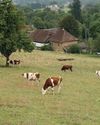
How to Buy a Smallholding in France- Long-time smallholder Lorraine Turnbull looks at the practicalities of moving to rural France
Aspiring smallholders are continually thwarted by the prices of smallholdings and property with land located within the UK. Even the humblest croft in Scotland comes with a substantial price tag and conditions which would make even an adventurous wannabee consider carefully. But all is not lost. For those willing to take the adventure of a lifetime, there is always Europe, and one of the most popular places is France.

Meet the Bournemouth goats and their supporters
These capricious animals are hard workers preserving the natural habitat

Still warm enough to sit outside with a Pizza
Henrietta Balcon uses fresh figs to create an unusual dish at Harvest time
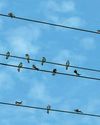
Goodbye to the birds of spring and summer
If you look and listen you might be able to see them preparing to leave says The RSPB
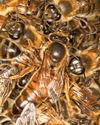
Get ready for the colder weather in the warmth of late summer
Claire Waring advises on doing the best to make sure your colonies survive until next spring
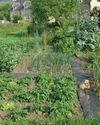
Preparing the Veg Patch for Winter
Lee Senior says, a well-run plot can excitingly continue to produce good quality, tasty, fresh food for much of winter
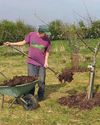
Time to prepare to plant your orchard
Wade Muggleton, smallholder and author of The Orchard Book, shares his practical experience so you can create your own fruit collection
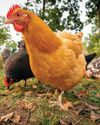
Choosing feed for the autumn
As autumn approaches, Joanna Palmer, nutritionist at the Smallholder Range, offers advice on choosing the right feed to support your adult birds through their annual moult and ensure your young birds grow and finish well at this time of the year.
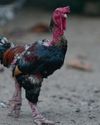
Vet advice from an experienced poultry vet
Reflecting on how much the humble hen has helped people world wide plus advice on stopping the scourge of red mite
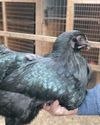
Give your hens some support
Paul Donovan looks at the right and wrong ways of handling birds